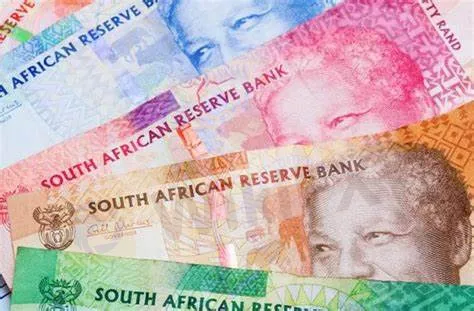简体中文
繁體中文
English
Pусский
日本語
ภาษาไทย
Tiếng Việt
Bahasa Indonesia
Español
हिन्दी
Filippiiniläinen
Français
Deutsch
Português
Türkçe
한국어
العربية
What can we anticipate from the rand in the months ahead?
Abstract:South Africans are likely to hear a broad variety of rand estimates this year, ranging from R14/dollar to R17/dollar – but Dr Francois Stofberg, senior economist at the Efficient Group, believes that R15/dollar is a more accurate indication of the rand's long-term worth.

South Africans are likely to hear a broad variety of rand estimates this year, ranging from R14/dollar to R17/dollar – but Dr Francois Stofberg, senior economist at the Efficient Group, believes that R15/dollar is a more accurate indication of the rand's long-term worth.
Stofberg said he would advise investors to transfer money abroad at any level below R15.50 in a research note released on Wednesday (19 January). “The rand has the potential to appreciate to levels around R14/dollar or decline to levels near R16/dollar. However, in our experience, they are simply temporary fluctuations.”
The rand is presently stabilising below R15.50/dollar, according to Investec chief economist Annabel Bishop, but is likely to approach R15.20/dollar this month, in line with usual January advances. For the first three weeks of this quarter, the native currency has averaged R15.67 per dollar, she noted.
“Foreigners have been bullish on South African markets so far this year, buying R4.4 billion in SA bonds (net of sales) and R1.2 billion in shares (also on a net basis) in the middle of last week.” So far this year, foreign inflows into South African portfolio assets have totaled R3 billion.
“Over the next three months, the South African Reserve Bank's hawkish monetary policy rhetoric will assist in keeping the rand within our fair value range,” it stated.“In Q4 2022, the current account is anticipated to turn negative, resulting in continued rand weakening.” Through 2022, a more hawkish Fed would weigh on the currency.

Disclaimer:
The views in this article only represent the author's personal views, and do not constitute investment advice on this platform. This platform does not guarantee the accuracy, completeness and timeliness of the information in the article, and will not be liable for any loss caused by the use of or reliance on the information in the article.
Read more

The Hidden Checklist: Five Unconventional Steps to Vet Your Broker
Forex broker scams continue to evolve, employing new tactics to appear credible and mislead unsuspecting traders. Identifying these fraudulent schemes requires vigilance and strategies beyond the usual advice. Here are five effective methods to help traders assess the legitimacy of a forex broker and avoid potential pitfalls.

Doo Financial Obtains Licenses in BVI and Cayman Islands
Doo Financial, a subsidiary of Singapore-based Doo Group, has expanded its regulatory footprint by securing new offshore licenses from the British Virgin Islands Financial Services Commission (BVI FSC) and the Cayman Islands Monetary Authority (CIMA).

CFI’s New Initiative Aims to Promote Transparency in Trading
A new programme has been launched by CFI to address the growing need for transparency and awareness in online trading. Named “Trading Transparency+: Empowering Awareness and Clarity in Trading,” the initiative seeks to combat misinformation and equip individuals with resources to evaluate whether trading aligns with their financial goals and circumstances.

Malaysian-Thai Fraud Syndicate Dismantled, Millions in Losses Reported
The Royal Malaysia Police (PDRM) has received 26 reports concerning the Nicshare and CommonApps investment schemes, both linked to a major fraudulent syndicate led by a Malaysian citizen. The syndicate’s activities came to light following the arrest of its leader by Thai authorities on 16 December.
WikiFX Broker
Latest News
ASIC Sues Binance Australia Derivatives for Misclassifying Retail Clients
Top 10 Trading Indicators Every Forex Trader Should Know
WikiFX Review: Is FxPro Reliable?
Malaysian-Thai Fraud Syndicate Dismantled, Millions in Losses Reported
Trading frauds topped the list of scams in India- Report Reveals
AIMS Broker Review
The Hidden Checklist: Five Unconventional Steps to Vet Your Broker
YAMARKETS' Jingle Bells Christmas Offer!
WikiFX Review: Something You Need to Know About Markets4you
Revolut Leads UK Neobanks in the Digital Banking Revolution
Currency Calculator


